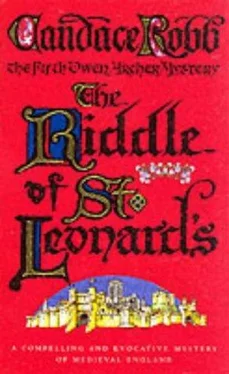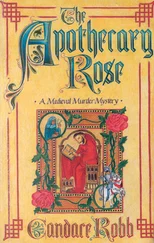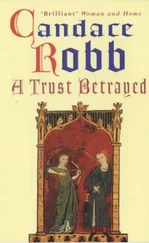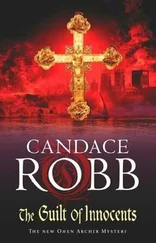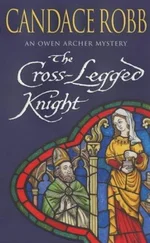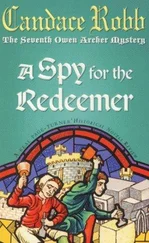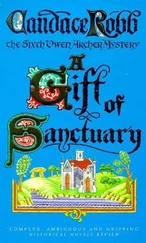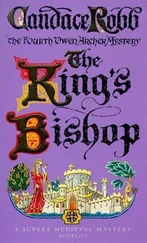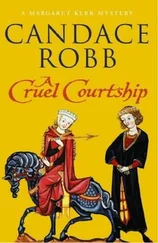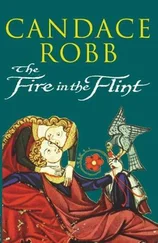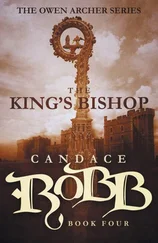Candace Robb - The Riddle Of St Leonard's
Здесь есть возможность читать онлайн «Candace Robb - The Riddle Of St Leonard's» весь текст электронной книги совершенно бесплатно (целиком полную версию без сокращений). В некоторых случаях можно слушать аудио, скачать через торрент в формате fb2 и присутствует краткое содержание. Год выпуска: 2011, ISBN: 2011, Издательство: Random House, Жанр: Исторический детектив, на английском языке. Описание произведения, (предисловие) а так же отзывы посетителей доступны на портале библиотеки ЛибКат.
- Название:The Riddle Of St Leonard's
- Автор:
- Издательство:Random House
- Жанр:
- Год:2011
- ISBN:9781446439838
- Рейтинг книги:4 / 5. Голосов: 1
-
Избранное:Добавить в избранное
- Отзывы:
-
Ваша оценка:
- 80
- 1
- 2
- 3
- 4
- 5
The Riddle Of St Leonard's: краткое содержание, описание и аннотация
Предлагаем к чтению аннотацию, описание, краткое содержание или предисловие (зависит от того, что написал сам автор книги «The Riddle Of St Leonard's»). Если вы не нашли необходимую информацию о книге — напишите в комментариях, мы постараемся отыскать её.
The Riddle Of St Leonard's — читать онлайн бесплатно полную книгу (весь текст) целиком
Ниже представлен текст книги, разбитый по страницам. Система сохранения места последней прочитанной страницы, позволяет с удобством читать онлайн бесплатно книгу «The Riddle Of St Leonard's», без необходимости каждый раз заново искать на чём Вы остановились. Поставьте закладку, и сможете в любой момент перейти на страницу, на которой закончили чтение.
Интервал:
Закладка:
‘I trust you, Nell. You are no idle gossip.’
‘Never idle.’ Nell turned and slowly led her cow towards the river, where the grass was high.
In Spen Lane, near St Andrew’s Church, Brother Wulfstan noticed a red cross on a house that was one of the abbey’s properties in the city. He had thought the house vacant. But that meant nothing; many abandoned houses in the city were at present home to those escaping the ill in their own households, and sometimes it was the sick who were shoved through loose shutters and left to die, the shelter considered a kindness.
After a long night watching at the bedside of a dying child whose mother was too terrified to comfort her, Brother Wulfstan’s head and bones ached, his eyes burned, his tongue was woolly, and he yearned to sit on a bench in the shade of his garden sipping watered wine freshened with mint leaves. But if there was a body within he must say prayers over it and arrange for its removal. With Gog and Magog abroad in the land, he could not desert the needy. How much worse must it have been in the first visitation, when half the city’s inhabitants had died? Half his brothers had died also, but they had been cared for in their suffering, no one had been sent away.
Wulfstan took a deep breath of what little fresh air there was in the street, preparing himself for the stench of the plague dead. Holding a sack of herbs to his nose, he pushed open the door.
Light filtered weakly through shutters at the rear of the main room. Dust danced in the light. A rat ran over the monk’s foot and escaped out into the street. Wulfstan blinked as his weak eyes adjusted, took his scented bag from his nose, sniffed. He coughed violently as the stench hit him. Dead or dying. But there was no one in the main room. He opened a shutter better to see the room. A ladder led to a solar or loft. The thought of climbing it made him ache all the more. But he must. He opened another shutter to let in some air. It hung crookedly and banged against the wall.
‘Who is there?’ someone called weakly from above.
‘God go with you,’ said Wulfstan. ‘I am the infirmarian of St Mary’s, come to help you. I saw the cross on the door.’
‘Leave me. I am better dead.’
‘Do you have water up there?’
A brittle laugh. ‘Neighbours do not bring gifts when the red cross is on the door.’
Pressing his aching lower back, Wulfstan let himself out by the back door. Across the rear yard he explored the kitchen. A lidless jug half filled with water smelled musky. Best not to chance it. Beneath the table he discovered a bottle of wine. It was turning, but it would be useful for mixing a salve if he should need to. He put the bottle in his pack. Returning to the house, he climbed the ladder, slowly, gagging on the stench which grew stronger with each step.
‘I am a sinner, Father.’ The man’s voice was hoarse from fever and thirst.
Wulfstan had made it to the top of the ladder and was too short of breath to reply. He put the herbs to his nose, clutched his side and waited until the room stopped spinning, then walked round the screen which shielded the sick man from view.
The room in which he lay was large, with shuttered windows facing away from the street. The man was naked, curled up on a filthy pile of straw. A mouse sniffed at his clothes, which had been thrown over a stool. Wulfstan shooed the mouse away. The stench of plague mingled with urine and sweat. Wulfstan approached the pallet. ‘Was it for you they put the cross on the door?’
‘No. I took it as a sign I would not be disturbed.’
‘And then you fell ill?’
The man lifted his arm, revealing an oozing boil the size of an egg. ‘One has burst.’
And thus the intensity of the smell. ‘Praise God. It is a good sign, my son.’
The man curled up, facing away. ‘I do not need lies.’
‘It is no lie. Some whose boils burst live.’
The man turned his head. There was a flicker of interest in his wet, red eyes. ‘You speak true?’
‘I have no reason to speak otherwise.’ Wulfstan felt the man’s forehead. A fever, but not so high as to be dangerous. ‘It was painful when it burst?’
‘More painful before.’
‘How long ago?’
‘Dawn.’
The sickness might already be abating. Wulfstan noticed a boil in the man’s groin, almost as large as the one under his arm. ‘Your other arm?’
The man lifted it, revealing a small black knob.
‘Could you bear my lancing the burst one? And the others?’
The man closed his eyes. ‘Will it save me?’
‘If God wishes.’
‘And if He does not?’
‘It sometimes hastens the end.’
A deep breath. ‘Do it.’
Wulfstan noticed another blemish on the man. On one arm a red-lipped wound oozed puss and was hot to the touch. ‘How did this happen?’
‘A bitch bit me here. And there.’ He lifted his leg to display a scabbed thigh wound.
Wulfstan touched it, gently pressed it. ‘They do not look like bites.’
‘Forgive me, Father.’
Wulfstan glanced up. The man watched him with the eyes of a frightened beast. Wulfstan remembered him now. ‘Both wounds would have closed had you returned with me to St Mary’s. Why did you take the bag and not the man with skill to use the medicines?’
‘You will leave me now.’
‘No. It does not matter.’ Wulfstan opened his pack, handed the man a small leather flask of brandywine. ‘What is your name?’
‘Why?’
‘I must call you something.’
‘John.’
Wulfstan did not believe the man’s name was John, but it did not matter. ‘There is not much left, John, but drink what there is.’ While the man drank, Wulfstan knelt and prayed God to give him strength, a steady hand, and clear vision. And if it was not John’s time, that he might live and repent.
‘I left your things in a safe place.’
Wulfstan nodded as he knelt awkwardly on his aching knees, drew his knife from its leather scabbard. ‘Be as still as you can bear, my son. There will be pain, but the more you move, the worse it will be.’
First he probed the burst boil. John cried out. Wulfstan sat back on his heels, watched as the putrid blood flowed faster. He wiped the sticky poison from his hands with a cloth. In a small dish he mixed powder of hemlock with a few drops of wine, stirred it, poured more wine. With the edge of a square of cloth he applied the salve to the boil. ‘To ease the pain.’ He then folded the cloth into a thick compress. ‘Hold this over it with your other hand.’ The man’s breath was uneven. Wulfstan prayed God he was not killing him. He would like to see one man survive after watching so many die. ‘Are you ready for the other arm?’
A silent nod.
Wulfstan said a prayer, leaned back and squinted, drew the knife across the boil. Nothing. He had not pressed hard enough. Sweat blinded him. He wiped his eyes, said another prayer, tried again. As the blade sank into the skin, black poison shot out and John cried out in pain. Wulfstan hurried to the window and gulped the air. The rooftops swam before him and he clung to the windowsill as his legs threatened to fold beneath him. He was too tired. He should have gone back to the abbey. But if he saved the man …
John moaned.
Wulfstan turned, steadied himself, and keeping one hand on the wall crossed back to him. ‘Forgive me, my son.’
‘I can bear it,’ John whispered.
‘I shall lance the one below and let it drain while I mix the salve. Are you ready?’ Wulfstan wiped his hands, dried the sweat on his brow, knelt to the last boil. It lanced with ease. Now the dirty straw on which John lay was saturated with the poison. It would be good to move the man, but where to? And how, with Wulfstan’s head spinning and his legs so unsteady?
Читать дальшеИнтервал:
Закладка:
Похожие книги на «The Riddle Of St Leonard's»
Представляем Вашему вниманию похожие книги на «The Riddle Of St Leonard's» списком для выбора. Мы отобрали схожую по названию и смыслу литературу в надежде предоставить читателям больше вариантов отыскать новые, интересные, ещё непрочитанные произведения.
Обсуждение, отзывы о книге «The Riddle Of St Leonard's» и просто собственные мнения читателей. Оставьте ваши комментарии, напишите, что Вы думаете о произведении, его смысле или главных героях. Укажите что конкретно понравилось, а что нет, и почему Вы так считаете.
